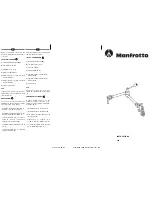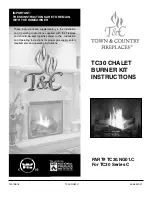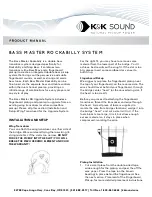
© Opticstar Ltd 2013-2015
5
Setting the Mount’s Latitude
Latitude is the
angular distance in degrees North or South from the
Equator for a location on the Earth
’s surface.
You will first need to
establish your location’s latitude. GPS devices including mobile phones
will supply this information. You can also obtain the latitude for your
location from a map or via an Internet search-engine. A list of large cities
and their longitudes and latitudes have been listed on page 8 for your
convenience.
You will only need to
physically set the mount’s latitude once for your
current location. It is important that you set the latitude without any load
on the mount at this point i.e. no counterweights and no telescope. It
makes the process easier, safer and without the need to balance the
telescope prior to physically setting the latitude.
To physically set the latitude for your mount you will need to use the two
latitude adjustment T-bolts (
15, 16
). By always loosening one T-bolt and
tightening the one opposite you will be able to revolve the upper part of
the mount-head until the latitude pointer points to the correct latitude on
the mount’s latitude scale (
8
). Once the latitude pointer points to the
desired latitude slowly tighten both T-bolts until they make contact. Do not
overtighten.
You are now ready to mount the counterweight and optical tube to the EQ700 mount.
Mounting the Counterweights
Before proceeding make certain that the counterweight shaft
(
11
) is pointing to
the ground and that the DEC and R.A. locking levers are tight (
3, 4
).
Completely unscrew and remove the counterweight safety screw-cap (
20
) at
the end of the counterweight shaft (
11
).
Carefully lift a counterweight and loosen the counterweight locking knob (
13
)
enough to ensure that the hole in the counterweight is free of the floating
locking pin.
Carefully slip the counterweight to approximately halfway up the counterweight
shaft and tighten the counterweight locking knob firmly. Replace the
counterweight safety screw-cap (
20
).
You can position and secure the counterweight further up the counter-shaft if
you intend to mount a smaller telescope like an 80-100mm aperture refractor,
lower down if you intend to mount a heavy telescope.
Mounting the Telescope
Ensure that the DEC and R.A. locking levers are tight (
3, 4
).
Loosen the large hand-
wheel bolt on the mount’s saddle as seen
on the image on the right so that it does not protrude into the
saddle.
Lift the optical tube and let it rest centrally on the saddle, tighten
the hand-wheel bolt. Make certain the hand-wheel has been
firmly tightened and that the scope has been secured before
releasing.
ATTENTION
The two latitude adjustment T-bolts work in a
push & pull
fashion, as you tighten one you must
loosen the other. Otherwise the bolts may bend resulting to damage not covered by warranty.
ATTENTION
The counterweight safety screw-cap (
20
) prevents counterweights from sliding entirely off the
counterweight shaft and must remain in place during normal use.
4
19
3
11
10
6
1
2
1
2
3
15
16
18
8


































